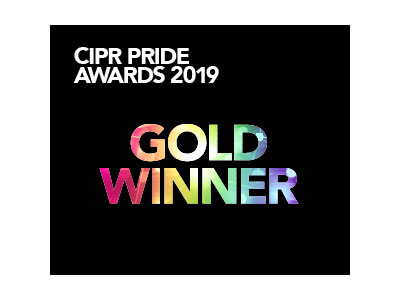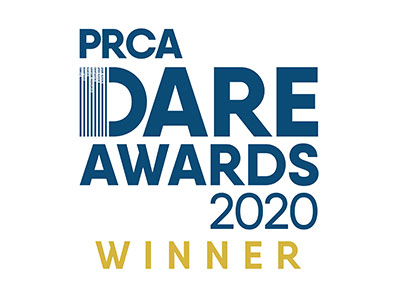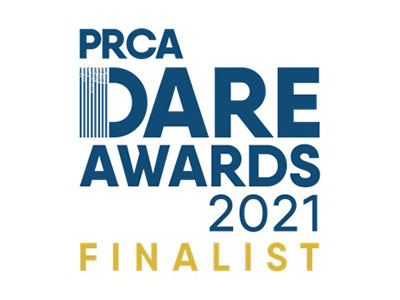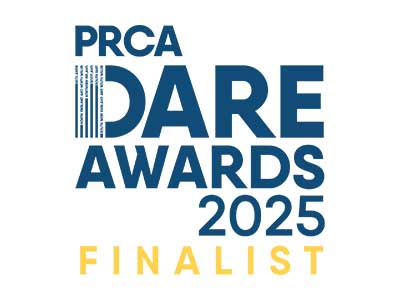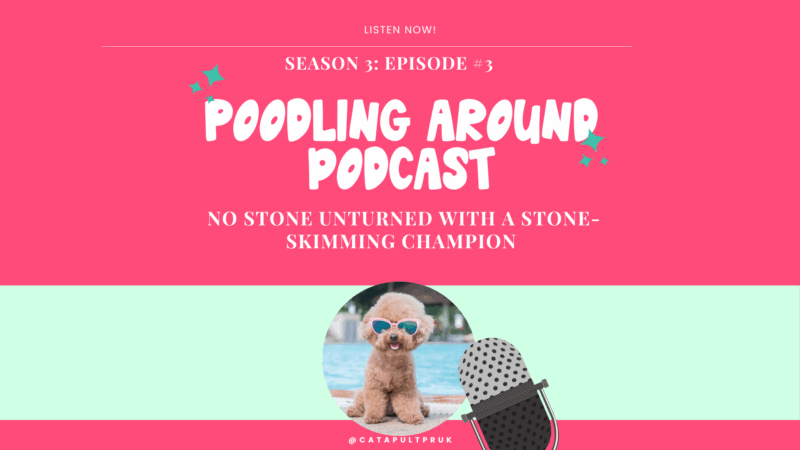
September 23rd, 2025
No Stone Unturned with a Stone-skimming Champion
Podcast: Play in new window | Download
Subscribe: RSS
Jane Hunt, a Lancashire-based PR specialist and managing director of Catapult PR, catches up with Alex Lewis, a Scottish student who also just happens to be a multi-title stone skimming champion, having won titles around the world. Jane first met Alex in 2018, as part of her travel PR and tourism PR promotion at Catapult PR. Having promoted the All-England stone skimming championships for about 10 years, at that point, Alex’s performances on Lake Windermere, in Cumbria, absolutely shone.
Jane, who has a real skill for promoting countryside events through PR and content, discovers all that Alex has done in his stone skimming career. She also finds out what it takes to be a champion stone skimmer and what lies in store in the future. She gets to the bottom of which are Alex’s favourite places at which to skim stones and his views about the future of stone skimming. And, she also picks up a champion’s tips on how the average person should go about skimming stones.
With so many children having developed a love of skimming stones that has lasted a lifetime, this is an episode that will strike a chord with many.
Transcript
Speaker A: Hello, Poodling Arounders.
Now, if you have ever spent any time in the countryside or on the coast as a child and found yourself by a river or a beach where there was a body of water and some pebbles at hand,
I almost guarantee you that at some point you would have found yourself being taught to skim stones.
Parents and grandparents just seem to relish teaching their kids to do this. And it is the most wholesome of activities, after all.
For most of us it’s just an addictive, innocent thing to do that creates the most wonderful memories. But for others of us, it becomes a sport.
And it’s on this that I’m going to focus today.
Now, for about 11 or 12 years of my PR life, every summer was spent promoting a thing called the All England Open Stone Skimming Championships. I did this out of the goodness of my heart for the vast majority of that time, as free PR for a charity.
There were some very funny and memorable. times along the way.
If any of you ever read my book, Rogue Elephants: One PR Girl’s Fight Through the Human Jungle, you may recall the year that I had the bright idea of organising the world’s first mascot stone skimming championships and I had to be an interpreter for a mascot, on TV.
I still burst out laughing whenever I think of that.
But towards the end of this journey, I met today’s guest, Alex Lewis, an absolutely amazing skimmer and an all-round charming young man.
Alex takes stone skimming to all new heights and heights that I’ve certainly not achieved, I have to tell you.
So let’s hear his story.
Speaker A: Now, Alex, you’re a multi-event-winning stone skimmer, but could you explain a little bit about what stone skimming means, just in case someone out there doesn’t know what it is?
20
00:00:19,000 –> 00:00:20,000
Speaker B: Absolutely.
So stone skimming is the art of getting a rock to bounce across water, by getting spin on it.
And in competition form in Europe,what we do is we measure the distance that the stone can travel before sinking.
And so stone skimming usually is the art of getting as many skips or bounces as possible with the stone.
But at the same time there’s also an angle of it that the further you can get stone to travel, the more impressive it is as well. And so in the competitions in Europe, that is the dimension of stone skimming that is primarily focused on when it comes to measuring people’s abilities.
Speaker A: Yeah, so that’s a distance-based thing then. But is there a number of skips that it has to have made in that distance? Because presumably otherwise people would just throw the rock.
Speaker B: Absolutely. That is a very good point. There is no overarm throwing to just see how far you can throw it and then get one bounce as it enters the water.
You have to get at least three skips with the stone,in a competition. for it to count.
And so sometimes you can get a stone that just lands really badly and then it plops and you get what is considered two skips, and then that doesn’t count. So you have to get at least three skips with the stone, in order for it to count in competition.
Speaker A: Ah, right. And that’s probably where I go wrong, because I can get maybe two at the most.
Then I do that plonking thing as you’ve described.
Well, Alex, you come from a really beautiful part of Scotland, I seem to recall.
So have you grown up with water all around you? And is that why you started stone skimming?
Speaker B: I have. I grew up in a place called Helensburgh, which is on the west coast of Scotland,
and it’s on the River Clyde, which I went and practised quite a bit on when I was younger. And also I have been on other parts of the west coast, when I was probably around 5 years old, when my dad taught me how to skim stones in this little place on Loch Fyne, which is about two hours from. From Helensburgh.
And from the point that I was getting to know and understand how to skim stones, when I was five or six, I was completely obsessed. And fortunately for me, living in an area where I am right next to water and that there are reasonably good stones to skim on the beaches, I was able to skim quite a lot while I was growing up, which helped me get better and better at it as I got older.
Speaker A: But when you were a kid doing all of this, did you ever imagine that there were events and championships that, you know, would be held for stone skimming?
Speaker B Absolutely not. I had no idea whatsoever. And it was only when I was, I think, 15 or 16. remember I was on a school trip, a canoeing trip, and we were camped on this island that had really good skimming stones on it. And so we’re all going down and skimming stones after we put our tents up, and I could throw a lot further than anyone else.
And one of the instructors that was with us said, you know, that there are actually competitions for this kind of thing.
I thought, “really?”
And I kind of forgot about it. And then about two or three years later, someone mentioned it again, and I ended up looking it up and then finding that there was a competition, rhe World Championships near Oban, at the end of that year and the end of September.
And so I thought, right, I’m going to go to that and I’m going to start practising a lot for that competition. And that’s how it all started.
Speaker A: Okay, so that was your first event. How did you get on there?
Speaker B: So that was the 2016 Stone-skimming World Championships. And I believe I came; I think I came sixth at that competition. I think I threw 51 meters. And the weather was absolutely atrocious at the time. And so it was a really good start to my stone skimming.
Um, but my favourite part of that first competition was that there was another skimmer, who was a huge fan of, and I’d seen lots of YouTube videos of, called Paul Crabtree.
And I actually met him on the boat over and I said that I’d seen him on YouTube and that I had been practising quite a lot. And then I went down and did a bit of practice at the place where they actually hold the competition. And I hit the back wall a few times. And then I went to the pub and he was there and I.
He said, oh, did you go down and practice? And I said, yeah, I hit the back wall a few times. He said, “Oh, you did, did you? Okay, because we are actually looking for a fourth member of our team. Would you like to join?”
And I was so honoured and overjoyed that this person, who is a kind of idol of mine, was willing to take my word for it that I was actually as good as I said I was and to join the team. And I think the team that year came second.
So it was a fantastic experience for me and a really, really great start to the sport.
Speaker A: Yeah, there are some big names in the sport. You’d be surprised, wouldn’t you, these role models that are out there.
But having started to compete, had you begun to do any special training then to kind of improve?
Speaker B So I used to do javelin quite competitively in track and field, and I did that all through my teenage years, until I got injured and ended up having to give up the sport.
But fortunately, the training regime for javelin is kind of similar to. Ro that of stone skimming. And so I just tweaked my gym training routine for what was my javelin training and then made it my stone skimming training.
And so I do a lot of flexibility workouts daily. And. And then I go to the gym as well and do a calisthenics on top of that, just to kind of strengthen my arms, my core, my shoulders, and also be as flexible as possible, because there are a lot of people that get injured in stone skimming because your arm gets into such contorted positions that you really have to have a lot of flexibility in order to avoid injury.
And thankfully, apart from this year,where between about March and May I had injured my shoulder, I’d not had any serious injuries in the near 10 years that I’d been doing stone skimming.
Speaker A: That’s handy then. I hadn’t realised that you were a javelin thrower. So, yeah, I can see that there’s some synergy there.
But now I seem to recall that, when I first met you, you were aged about 21, and I think that was about 2018. Is that right?
And you competed at the All England Open Stone Skimming Championships and you broke the record that year, I think.
But then a year later, you did this amazing throw of 98 metres and you broke your own record, didn’t you?
And I remember generating press coverage around that and it was absolutely spectacular. But do you actually remember doing that? I mean, I remember it vividly because I’d been going there for about 10 years on the trot and I’d never seen anything like it.
But do you remember it being a great throw?
68
00:01:07,000 –> 00:01:08,000
Speaker B: I do, I do.
For. For me, the All England Stone Skimming Championships was a really great eye opener to me for how you have to be able to throw stones in all conditions.
Because the first time that I went to that competition, which was in 2017, I had a particular technique that I threw in all conditions. And when I went to the competition, on Lake Windermere, it was quite windy. And my technique was pretty hopeless. I think that I might have earned 70 metres and come third in 2017.
And I realised that I had to create a technique that I could use throwing in windy conditions. And so I did a lot of trial and error. And one big thing that I did was, I got a hundred stones and I numbered each of them and I weighed, weighed them, measured their width and their thickness. And then I threw them all in windy conditions and measured how far each one went and then graphed all the results just to see what kind of stone did best in windy conditions.
And then I did the same thing again with stones that were better for windy conditions and then threw them with different techniques as well, and then found the technique that tended to do best in windy conditions.
And so when it came to the next year of the competition, I threw 95m, I think, which set the record.
And then you’re right. In 2019, I went and I think it might have been the first round of throwing that I think I got because I think you had four stones at the, the All England Championships.
And I had my first throw which was about 72 meters and then I had a second throw which was 76 meters, that was I think one or two meters further than a person that had been in first place.
So I was in the lead. And then I, my third throw was this wonderful 98-metre throw and I thought, well, I suppose that’s me for the rest of the day. So then I went and got a pizza from one of the marquees and just celebrated.
It was great.
Speaker A: I can sort of remember this stunned silence, because I don’t think anybody had ever seen somebody do that sort of thing. And like you say, there were times on that lake, I mean we didn’t always go to Windermere, we were on Coniston one year, but on Windermere, the wind in that particular position seemed to come down from the fells and it was like a sea at times, wasn’t it. It was like waves and then boats would go and so there were more waves coming in. So yeah, it was really tricky and some of the weather conditions, in some years, were absolutely atrocious.
But I can just remember the crowd sort of like, I think they were just in awe of what you’d done. It was just amazing. I mean, I had that reaction as well and you know, the whole year is really memorable for me as well because I have this real thing about … I can’t deal with anything that’s in a tangle, whether it’s fairy lights or anything else.
And I remember the National Trust had managed to get the ropes for the lanes for the stone skimming in this massive, massive tangle and we were delayed in starting.
Speaker A And I can remember that you were sorting that out.
Speaker B: Yeah, it was this 120 metre tangle and I remember standing there thinking I really, really want to help. But then every time I offered they said, no, no, no, don’t worry, it’s fine.
Like, oh my gosh. Yeah, I, I was getting stressed out as well.
Speaker A: I didn’t step in to help because that would have just done me in for the day because like I say, I can’t deal with anything that’s tangled. I just have this real thing about it.
So yeah, it was a bit of a nightmare for me to even look at it. But yeah, so, I mean the last of these triumphs that we’re describing on this day was about six years ago now and it breaks my heart actually that the All England Championships no longer exist, because it was all charity-run and they didn’t want to devote any more resource to it. But,what have you been up to in those six years? Because I think what people find interesting is that this isn’t just a British thing, is it? You go all over to do this, don’t you?
Speaker B: That’s absolutely right. I was in Switzerland last month competing at the Swiss Championships.
And in October time I’ll be going to Berlin for the Berlin Stone Skimming Championships.
And I have been further afield. I have travelled to Japan in 2018 to compete over there. And then last year, last August, I flew over to the United States and was there for about three weeks and I went to two stone skipping championships in two different states.
And there’s a very famous stone skipper in the United States called Kurt Steiner, who I befriended. And in 2018 he came over to the UK to compete in a world record attempt and we got on really, really well and he said, “you should come over to the States and then come to multiple competitions and we’ll make a road trip out of it.”
And it’s just been something that’s been in the planning ever since.
And every year something has happened, whether it’s Covid or he’s got injured or I’ve started university and it’s just not been convenient to do.
But last year it all worked and I was able to go over and compete over there, which was a wonderful experience.
Mm.
Speaker A: Because I guess Covid put a real dampener on all of this, didn’t it? I guess there was very little you could do. Did did they all. Did they cancel all the events or was there a possibility of running any?
Speaker B: Events during COVID … It was a really challenging time for the sport because I felt like in 2019 there had been an immense amount of interest, fostered by records broken that year. brilliant publicity … stone skimming was really, really on the up.
And then 2020 happened. Every single competition got cancelled.
The British Stone Skimming Championships was cancelled three years in a row. The World Championships was cancelled three years in a row.
And it was just kind of dire for the sport, really, because it was just. There was nothing happening.
And unfortunately the British did come back in 2023, but then the organiser, suffering from long Covid, has decided to pack it in. So it’s not been held since then.
So now we’ve only got two competitions in the UK, just the Welsh and the World Championships, which is a real shame. It’d be fantastic to have some more,yeah.
Speaker A: Oh, that’s terrible, isn’t it? Because I think it’s such a joyous thing, isn’t it? And what I used to love, actually, was seeing young kids standing on the bank thinking, oh, I can do that, and having a go themselves.
And because I did it for so many years, I kind of saw a lot of those kids progress through the age groups and actually become, you know, quite good skimmers.
So it’s such a shame that that’s not there, because it’s so much better than sitting on a computer screen, isn’t it? Getting out and doing something like stone skimming, it’s just a wonderful thing to do, isn’t it?
Speaker B Absolutely, yeah.
Speaker A: So, anyway, I guess you must now have a lot of titles on your roll of honour. So what features on that now, Alex?
Speaker B: Let me think. I have won the Welsh Championships three times.
I’ve won the Swiss championships two times. I’ve won the English Championships two times, and I think that I’ve won 10 competitions in total. I’m trying to think what the other ones are, but I. I still hold the title for the English competition. I hold the title the. the record. sorry, for distance, for the Welsh competition, the British competition and the All-England competition, which is nice.
Yeah, Yeah, I did. I did have the record for the Swiss until last month when one of the other competitors, Gary Bailey, broke it, which was fantastic to see. He got an absolutely extraordinary throw in. That was his A PB for him, a personal best. And so it was really, really great to see that record broken, actually. It was wonderful.
Speaker A: And which is your favourite of those triumphs and which is your favourite place to compete?
Speaker B: I think that my favourite place to compete would be the Swiss Stone Skimming Championships, because the organiser of that event is this really wonderful man called Andy Hostettler and he’s such a terrific host.
If you travel from afar, he lets you stay in his outhouse free of charge. And we usually all arrive, kind of two days before, so we can then go to the neighbouring town and do a bit of sightseeing and enjoy the environment and go swimming and go practising.
And it’s just a really wonderful place to. to have a competition and to, to also visit.
And I would say the best venue for the competitions is probably the Welsh, where they hold the Welsh Stone Skimming Championships. It’s this wonderful long artificial lake with tree coverage all around, and so it tends not to get particularly wavy when you’re competing. And so that’s the place where almost every single stone skimmer’s personal best is because the conditions are almost always terrific there.
Speaker A: And whereabouts in Wales is that then?
Speaker B: It’s a little town called Llanwrtwd Wells in Wales and it’s just about right in the centre and I believe that it’s the smallest town in the UK, I believe, but it’s a wonderful little town, a really nice place to visit.
Speaker A: Yeah. And now what’s the current situation? Because you’ve said that you are a student now, aren’t you? So, you know, how do you manage to do your stone skimming and your studying at the same time? And where do you practice now that you’re at university?
Speaker B: So I’m at Stirling University and fortunately it’s actually situated on a loch called Airthrey Loch, which is a pretty good place to skim stones, actually. And so when I was in my first year, I would take about 5, 10 stones with three as I walked to class in the morning and I would skim them on the lake before going to my lectures.
And there’s also a reservoir near where I live as well.So even while I’m at university I make time to get practice in as regularly as I can, just to kind of keep me on my toes.
Speaker A And so what’s the next event for you then? Where will you be heading off next to Stoneskim?
Speaker B: The next event for me would be the World Championships, which is on the 6th of September and so about six weeks time, I think, and then after that at the start of October, I’ll be going to Berlin or the Berlin Stone Skimming Championships, which is the second time they’ve held it. So I’m really looking forward to going to that.
Speaker A: So I’m right in thinking, aren’t I, that the Scottish one, the World Championships is held in a quarry, is that right?
Speaker B: That’s right, yeah. And it’s held in a quarry that’s 63-metres long. It’s a bit of a difficult situation for, I think, the sport actually, because when they, they started the World Championships way back in 1995 or so, it took about 10 years before anyone hit the back wall for the first time.
And it was a big thing, someone hitting the back wall, hitting 63 metres.
Now, in most competitions, you have to get over a hundred metres to even get first, second or third. The sport has really moved on from that sort of distance.
I mean, the furthest I’ve thrown was at the Welsh two years ago and I threw 147.7 metres, which is well over double the distance of the venue for the World Championships.
Speaker A: That’s amazing.
And I thought 98 meters was good, so that would be absolutely amazing to see that sort of distance thrown. I can’t, I can’t even comprehend what that would look like. But yeah, because, I mean, you’ve talked about the barrier issue, but I seem to recall that you had a real dream of having your own kind of event at one point, or finding a venue where those long distances could actually be thrown.
I mean, do you still have that dream to sort of have your own sort of championship venue somewhere at some point?
Speaker B: Absolutely.
It’s a combined dream for a lot of stone skimmers, to find an event area, an event arena that is nice and long, has good coverage and can be organised by stone skimmers.
The challenge is that it’s quite hard. Even though you can skim pretty much anywhere that there’s a body of water.
It’s quite difficult finding a venue that is good for holding a competition there. There was somewhere in Helensburgh, this old skating pond that I thought would be good to have a competition at, but it just, it was completely overgrown with weeds.
And I tried to persuade the council to get behind it to, to help clear it, but they were very enthusiastic about a competition being held there.
But they, they said that when it comes to clearing it, I was on my own.
But this, that was back in 2018 and the, the length of the skating pond is 140 meters and now that’s not worth going for anymore because that distance is no longer long enough to, to hold a competition.
And so that, that was the issue with the, with the Welsh Championships was that my 147.7 meter throw, the only reason why it was so easy to measure is because it landed on the other side and it could have gone further had it not entered into a load of reeds.
And so even the Welsh Championships is getting to the point where it’s no longer long enough, which is an extraordinary thing to think.
Yeah.
And so trying to find.
It’s a bit like what one of the other stone skimmers referred to the analogy of the Goldilocks zone of another planet that could support life. It has to be, you know, another planet has to be just cold enough, but just hot enough and just the right size.
And finding a venue for a stone skimming championships is a bit like a Goldilocks zone. You have to have it long enough, but with good tree cover on, on all sides, in order to make it nice and kind of covered from the wind. You have to be able to go along the edge of it. So it’d be easy to measure the distances and you have to have a good place where you can actually skim from.
And if you take all those factors in, there are probably very few locations that are good. And then if you do find one, it’s often owned by either the council or some charitable trust and they’re semi enthusiastic about it.
And then when they consider health and safety, they just say, oh, no, it’s too, it’s too dangerous.
And then you’re back to, back to score one. And so I’m convinced that there will be a competition, a new competition in the UK before 2030.
I’d say we will find somewhere we will be able to organise a competition. But at the moment we’re still in the searching stage, for that kind of competition.
Speaker A: Well, that’s a real challenge for anybody that’s listening, isn’t it? If you.
Speaker B Yeah. So if, if anyone listening knows any really good bodies of water that could potentially hold a competition, let me know. I would love to know.
Speaker A Yeah. Um, because there must be somewhere out there that nobody knows about.
Yeah, I mean, you, you raised a point there, because you said “the position that you skim from”, and I wondered, is there a name for that? Because in darts they have an oche.
But what do they call the place that you go before you skim the stones? What’s that called in stone skimming?
Speaker B: Oh, we tend to just refer to it as the, as the platform. But the, the World Championships actually have them has a massive slab of late that they call the ache, where people skim from.
And so, yeah, in, in the World Championships they do call it the ache as well.
But in other competitions it’s just, it’s usually just a kind of bit of wood or part of a marina or something like that and it’s just kind of referred to as the platform.
Speaker A There was one year on Windermere when we skimmed from close to a pub and it was. People went down the steps and actually skimmed on some steps. But depending on whether you were right or left handed, some people couldn’t get there, couldn’t get their throw in,because it was impossible to kind of negotiate the side of these big sort of stone steps that went down.
That was, that was an interesting year. So I think you perhaps missed that one. But yeah, there were all sorts of different sort of scenarios, I think in my time of doing this. Some of them good, some of them not so good. And it was probably not a good year that year. But it was very handy for the organisers because it was A charity thing, and they could get the megaphone out and get people coming off the boats as they docked.
Speaker B: Right, yes, so.
Speaker A: So that was good. So they raised a lot of money. I think it just wasn’t so good for the stone skimmers themselves.
So. Do you think that stone skimming could ever become an Olympic sport? Because I remember that I don’t know whether he’s still around, but there was a man called Ron Long, and I think he used to think that that was a possibility.
Is that still a possibility?
Speaker B I. I do think it is. I think that what needs to be created is some kind of stone skimming governing body. And then from there there’s some. Yeah, if there was a kind of stone skimming federation that was created, that was a kind of voice for the sport and. And then if there was from there some kind of officialness of the sport instead of it just being …
I think at the moment it’s just a hobby with competitions that. I think that there is a possibility that it might become an Olympic sport.
I do, actually. I think that if it were to become an Olympic sport, it would most likely be with artificial skimming stones rather than natural stones.
And I think there is a possibility because I think it’s a great one to watch and it’s terrifically satisfying both skimming a good skim and also watching a good skim as well.
And yeah, I would think that maybe the thing to do is to contact Seb Coe or whoever’s the head of the Olympics,Lord Coe, sorry. And. And ask him, see what he thinks. And. And maybe for him, when he says, not right now, but if you did these things, then we’ll see.
You never know.
You never know.
Speaker A: And it’s such an event for everybody, isn’t it? Because you don’t need equipment. You don’t need to be spending a lot of money to actually participate in this sport.
As long as you’ve got some water and some stones, you can do it, can’t you?
Speaker B: Absolutely. I think that’s something that’s really wonderful about the sport, is that everyone has done it, everyone has skimmed stones.
And so it’s almost like the sport where most people have competed or done it, besides running.
And you don’t know you need any fancy equipment. It’s not like sailing or the pole vault or any kind of equestrian sports or anything like that. You just need water and stones which are on the beach, and you can do it.
And I think that that’s something that’s really wonderful about it, is that Anyone can become a really good stone skimmer and they don’t need any fancy tech or lots of money to get into the sport. You just need enthusiasm.
Speaker A: Yeah, and you’re right, every child has probably had a go at some point, haven’t they? Is Ron Long still around? Because he was quite a pioneer of the sport, wasn’t he?
Is he still on the stone skimming scene?
Speaker B: He is, he is. He’s one of the great stone skimmers in the UK and has won a lot of competitions and is a really good voice for the sport.
And he was at the Welsh Championships earlier this year, to compete there. And he’s definitely the oldest competitor that’s still on the circuit.
And he must be in his early 80s now. And I. It’s always wonderful to see him at competitions because he really shows that it doesn’t matter what age you are, as long as you have enthusiasm for the sport and are wanting to practice and wanting to compete, you can. And you can still throw big distances and compete at a top level, no matter what age you are.
Speaker A: Yeah, and he. I remember he’s got a great backstory, doesn’t he? Because I think he was a fireman and he had to retire from the fire service because he’d been in quite a serious incident.
And I think the story goes that he went to Greece and sat on a beach and thought, “what am I gonna do with my life now?” And started skimming stones.
And this has kind of led him on this new kind of journey, I guess, of becoming a stone skimmer. So that’s quite a nice little story, isn’t is?
Speaker B: Lovely. It is lovely. And he’s. He’s so passionate about stone skimming. It’s. It’s terrific. I really like it.
Speaker A: Yeah.
Now, I asked you where your favourite place to compete is, but when you’re just relaxing and you’re out and about or you’re back at home, where do you just love to go and skim?
Speaker B: The place where I enjoy skimming the most is at the place where I learned to skim stones, actually. It’s place on. On Loch Fyne, about two hours from. From where I used to live in Helensburgh. And there are lagoons there that are very,v ery long and also pretty shallow. And so the magical part of skimming there is that I can get quite a lot of my stones back if I look long enough, because I think that’s something that’s a challenge with stone skimming is you. you could search for hours and hours and collect some really good Skimming stones and then you throw them all and then that’s it, you’re not getting them back.
And so skimming there is really great because I can, I can collect my stones back. But then Airthrey Loch, where Stirling University is, is another really, really wonderful place to skim stones. You just have to make sure that there are no birds about in your field of view and then you’ll be fine.
Speaker A: So if any of our listeners are now inspired and want to take it up, how do they start? What’s the technique that they need to use?
And what sort of stone should they look for?
Speaker B: Well, they want to do is they want to look for some nice flat stones on the beach and find something that, what we call a hook,and that could be a little indent in the rock or something that you could really get your index finger stuck into.
And once you get your finger stuck into it, when you release the stone, that’s where you can spin your index finger and get the stone to spin. And while the stone is spinning, that’s what keeps it on the water.
There’s a. There’s a phrase, no spin, no skim. And so you’ve got to find a stone where, if it’s a kind of perfectly round stone, you’d think, oh, that’s the best. But then if you can’t get your finger gripped on it, then you can’t generate that much spin on it.
And so something with a little hook on it is preferred.
And then when they’re actually releasing the stone, for starters, what they need to think about is getting the stone to land flat on the water, and that’s what will help it continue along its trajectory. And so finding a nice flat stone that has a good hook on it so they can get spin and then throwing it so that it lands flat on the water when they release the stone is a really good way to start off with getting better at stone skimming.
Speaker A: So that means bending the knees, I guess, getting down closer to the level of the water, is that right?
Speaker B: Getting closer to the water does help. Some people have techniques where they get really close to the water when they release, which is a little bit unusual, but I quite like that technique.
And so, yeah, I would say bending your knees to, to get closer to the water helps. It also helps with stability as well, and, and kind of getting the angle right as well. There’s this belief that a perfect skimming stone needs to be released at an angle of 20 degrees. And every time there’s a newspaper article about stone skimming, it often Says, oh, if you want to throw the perfect stone, you throw at an angle of 20 degrees.
But in reality it depends a lot on the conditions, what stone you’re throwing, what you’re wanting to do with the stone, whether you’re wanting to go for skips, whether you’re wanting to go for, for distance.
But I suppose, to start off with, 20 degrees might be a good rule of thumb. And then as you get more and more competitive, you’ll need to change that, depending on the conditions and what stone you’re throwing and what you’re wanting to do with the stone.
Speaker A: So I guess the perfect skim then is sort of a combination of technique, conditions on the day. Anything else?
Speaker B: I would say that technique is more important than power.
I think there’s a belief that the harder you throw the stone, then the further it will go.
But in reality the technique is pretty much, I would say, 80% of. If it’s down to you and not the conditions, if the conditions are the same, then the distance, 80% of the distance comes from your technique and 20% of it comes from your power.
And so it’s more important to focus on your technique than your power because sometimes you get people, rugby player guys, coming to competitions and they absolutely force the stone and it releases so quickly, but it doesn’t go too far because their technique is not too good. So technique is definitely the most important thing and just that is developed through practice. And practice and practice.
Yeah.
Speaker A: And these events that are out there, can people find details of those online? Do they have websites?
Speaker B: Some of them do have websites.
That was something that I didn’t know about. When I went to the World Championships, I thought there was only one competition, the World Championships, but then I find out there that there were others.
And so if they wanting or wanting to go to the World Championships, then they should look up the Stone Skimming World Championships.
And if it’s the Welsh competition, then it’s organised by a charity called Green Events and they actually organise the alternative Olympic Games and they have other competitions like man versus Horse and Bog Snorkelling World Championships.
And one of the things that they organise is the, is the Welsh Championships. The competition next competition is the Berlin Stone Skimming Championships.
So I’m sure if someone were to Google that, they would probably find the competition at the end of October or, sorry, the start of October and still be able to get tickets for that if they wanted to.
Speaker A: Right. Oh, that sounds interesting. I’d have to think about that.
Finally, what’s so good about stone skimming in your opinion? And are you glad that you learned to do this when you were a kid and have, you know, followed this path?
Speaker B Absolutely. I think it’s terrific. For me, I find it very much a relaxing thing to do.
And you have to be relaxed in order to throw big distances. You can’t throw out of frustration.
You have to be relaxed.
And it’s very satisfying. It’s very relaxing.
And there’s just this wonder of being able to get a stone to travel such a distance and to get such a large number of skips. It’s wonderful to see.
And for me, it’s just a really great way to. To unwind. Yeah, yeah.
Speaker A: But not. Not throwing in frustration, as you say, just letting go. Yeah, the best possible.
Speaker B: Precisely. Precisely.
Speaker A: Well, thank you very much, Alex. That’s been absolutely fantastic to catch up with you again and thanks for your time. And I’m sure lots of people out there will be wanting to find some stones straight away and get to the nearest body of water and start practising.
So thank you for inspiring us all.
Speaker B: No problem. And if people want to find out about other events, and also on my Instagram, I go to competitions and I do updates on how the competition is going on my Instagram. If people want to find me on Alex underscore stoneskimmer, then they can find more about the sport and about the competitions that are being held.
Speaker A: That’s fantastic. Thanks ever so much. So there we go. Another brilliant guest on the show telling us about something that’s just a fantastic thing to do, when you are poodling around.
DO take up the tips and see how you get on; I’d love to hear about your progress.
Until the next time, whether you are skimming stones in South America or in Scarbados, or Scarborough to you and me, take very good care of yourself. And remember, life is much more fun when you are poodling around.



